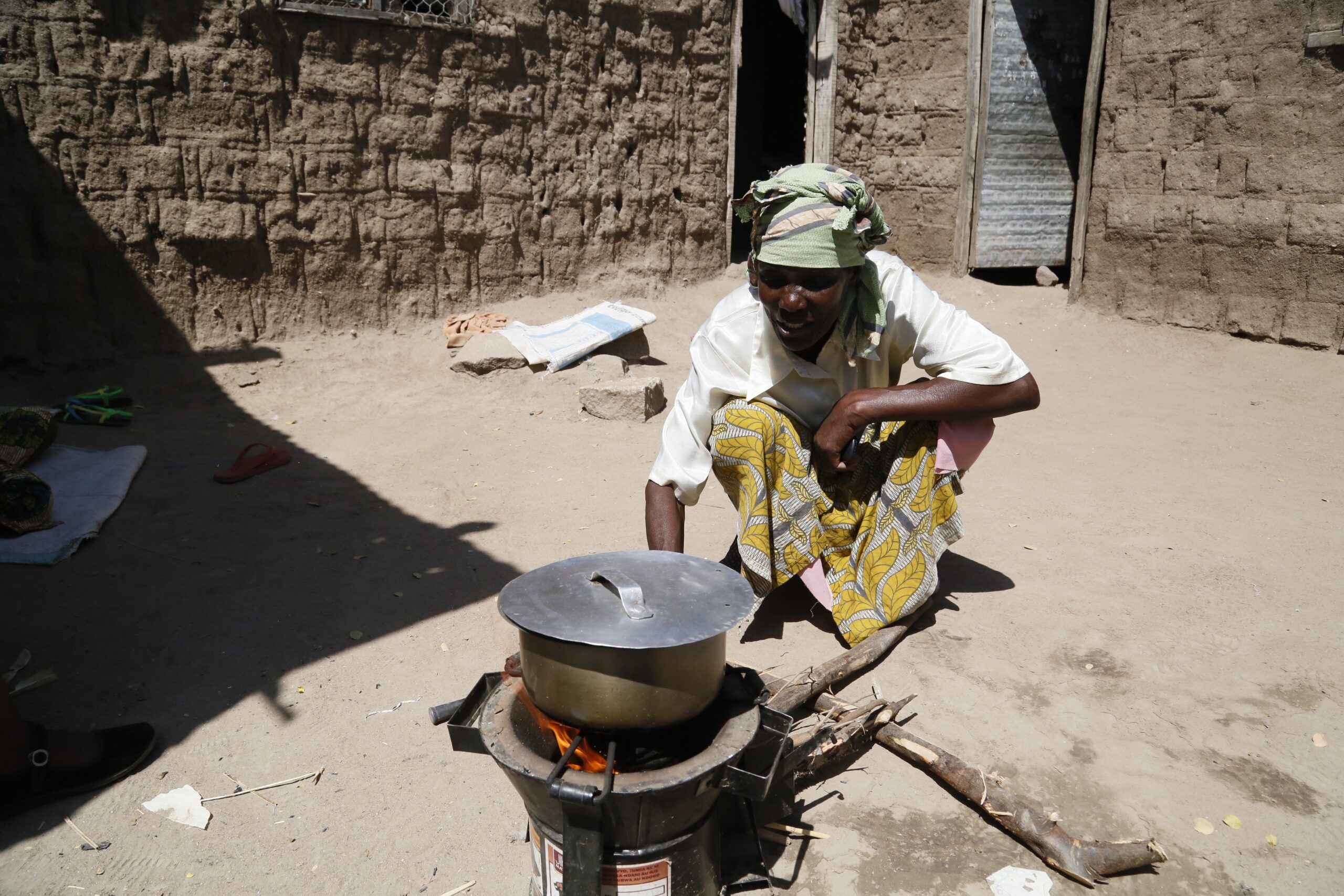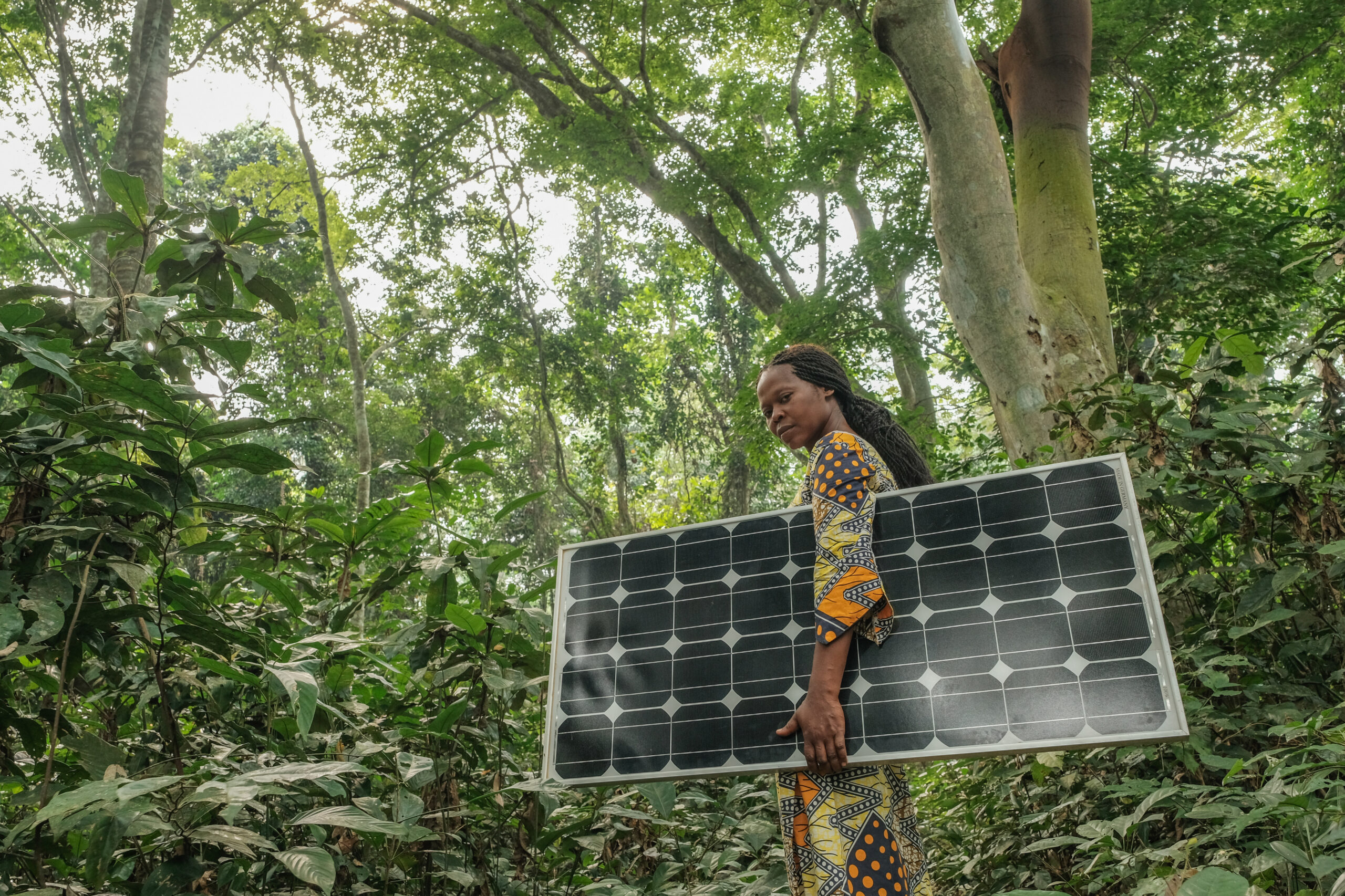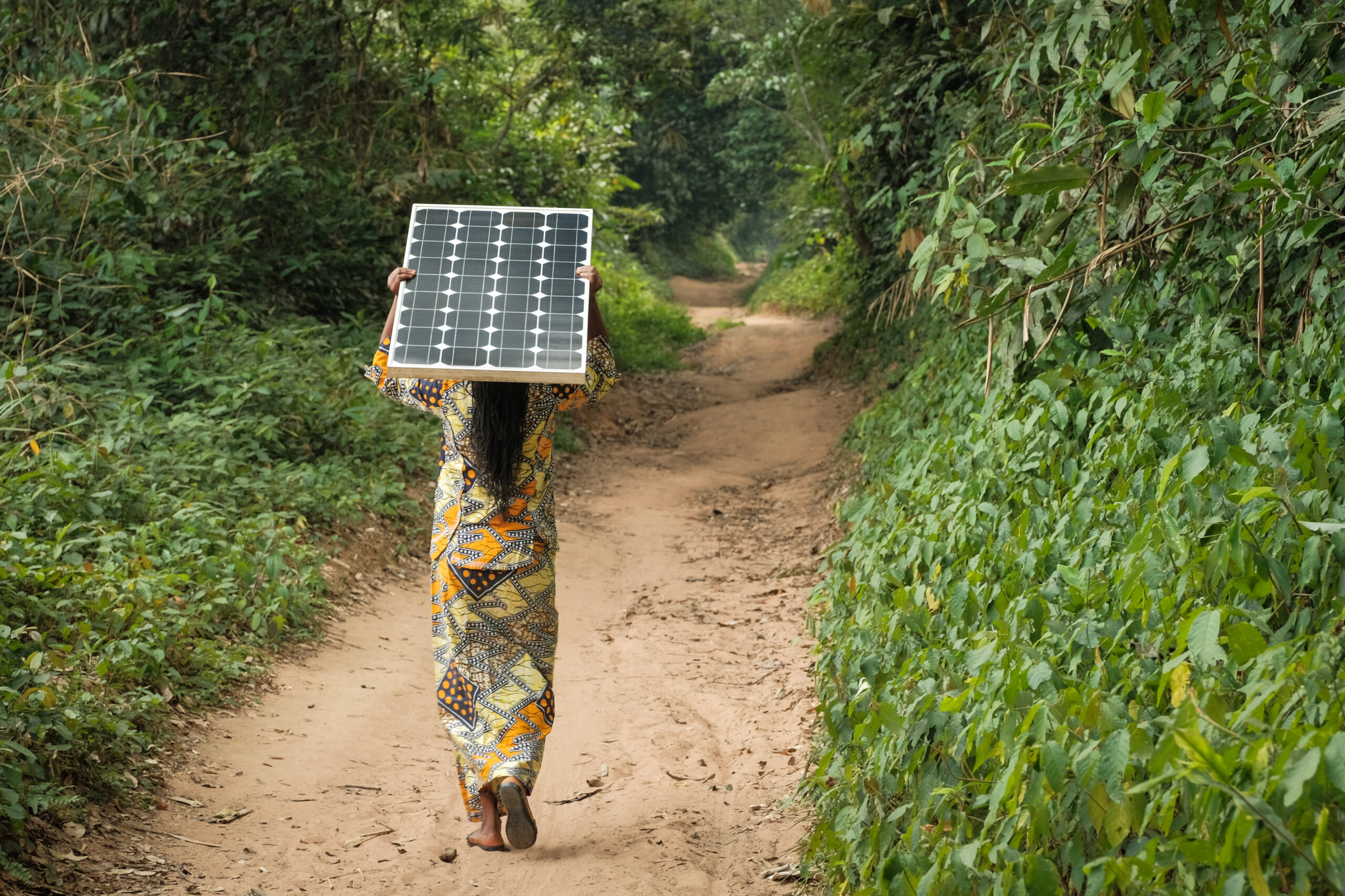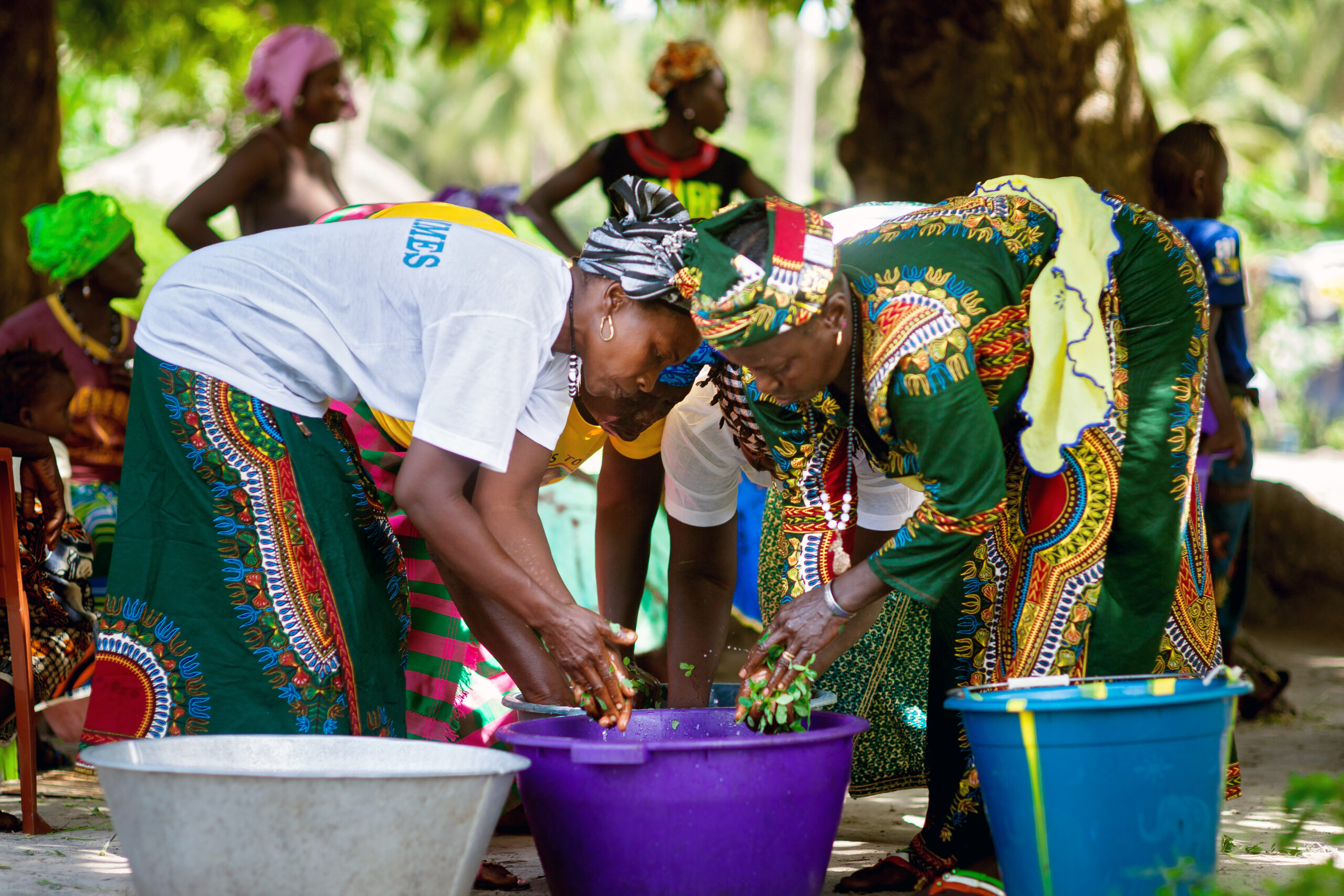'Elizabeth Mukwimba M-Power customer with cookstove 01' by DFID - UK Department for International Development via Flickr (CC BY 2.0) https://flic.kr/p/yQwHgf

Reducing Drudgery and Improving Lives: Clean-Powered Agri-Technologies in sub-Saharan Africa
20 September 2024
In Sub-Saharan Africa, agricultural communities face a myriad of challenges that hinder productivity and sustainability. Dr. Ferdinand Tornyie, a Research Fellow at the United Nations University Institute for Natural Resources in Africa, sheds light on a transformative initiative aimed at revolutionising agricultural practices through clean energy-powered technologies. The “Innovate for Clean Agricultural Technologies” (INFoCAT) project seeks to eliminate drudgery in agricultural value chains and empower women, who are often the backbone of rural economies.
Addressing Drudgery in Agriculture
Agriculture in Sub-Saharan Africa is labour-intensive and time-consuming. Harvesting and processing crops such as peanuts (groundnuts) require extensive manual labour. Farmers, particularly women, spend countless hours on these activities, often involving their children and diverting them from education. Dr. Tornyie highlights a specific example where women spend up to five hours plucking peanut pods—a task that could be completed in just ten minutes with appropriate machinery. This inefficiency not only hampers productivity but also affects the quality of life and economic prospects of these communities.
The INFoCAT project aims to introduce clean agricultural machinery designed to reduce the physical labour involved in such tasks. By doing so, it not only boosts the productivity and incomes of smallholder rural farmers but also ensures that children can stay in school, contributing to the long-term socio-economic development of the region.
Emphasising Clean Energy Solutions
A core component of the project is the integration of clean energy sources. The global agenda on energy transition underscores the importance of moving away from fossil fuels and biomass burning, which are prevalent in rural farming communities. These traditional energy sources are hazardous to health and contribute to environmental degradation. For example, using firewood for food processing exposes women to harmful smoke and pollutants, while collecting firewood depletes forests and consumes valuable time.
By adopting clean energy solutions like solar power, the project aims to create a sustainable and healthy environment for farmers. Solar-powered machinery not only reduces the health risks associated with traditional practices but also offers a cost-effective and long-term solution for energy needs in agriculture. This shift is crucial for maintaining environmental integrity and ensuring the health and well-being of rural populations.
Inclusivity in Development
The “Innovate for Clean Agricultural Technologies” project employs a holistic approach that involves all stakeholders from the outset. Policymakers, green entrepreneurs, women’s groups, and experts collaborate to design and implement these technologies. This inclusive methodology ensures that the technologies developed are tailored to the specific needs and challenges faced by the communities.
Smallholder farmers and agro-processors, who are the primary users of these technologies, actively participate in the co-design process. Their input is invaluable in creating solutions that are practical and effective in reducing labour-intensive tasks. By involving policymakers from the beginning, the project ensures that the technologies developed are aligned with national development goals and policies, facilitating smoother adoption and scaling.
Long-term Impact and Policy Influence
One of the significant aims of the project is to generate evidence that can influence policy and drive broader adoption of clean agricultural technologies. Demonstrating the benefits of these technologies from both an economic and environmental perspective is crucial. By showing how clean energy solutions can enhance productivity, improve health outcomes, and contribute to environmental sustainability, the project aims to create a compelling case for policymakers.
This evidence-based approach not only facilitates the adoption of these technologies at a local level but also informs national policies on energy and agriculture. By showcasing successful implementations, the project hopes to inspire similar initiatives across the region, driving a widespread transition towards clean energy in agriculture.
Acknowledging Support and Future Prospects
The project’s success is made possible through the support of the International Development Research Centre (IDRC). Their sponsorship and commitment to funding innovative solutions in food, agriculture, and energy are instrumental in bringing these ideas to fruition. The backing from IDRC not only facilitates the development and implementation of clean agricultural technologies but also supports efforts to scale these innovations, ensuring they reach more communities across Sub-Saharan Africa.
The “Innovate for Clean Agricultural Technologies” (INFoCAT) project represents a significant step towards transforming agriculture in Sub-Saharan Africa. By addressing the drudgery in agricultural practices, integrating clean energy solutions, and fostering inclusive development, the project aims to create sustainable livelihoods and empower women in rural communities. As the project progresses, it holds the promise of not only improving agricultural productivity but also contributing to the broader goals of environmental sustainability and socio-economic development in the region.
blog
Lead Partner
UNU-INRA
The United Nations University Institute for Natural Resources in Africa (UNU-INRA) is one of the 15 Research and Training Centres / Programmes of the United Nations University (UNU). The aim of the institute is to bridge the gap between science and natural resources management policies in Africa. UNU-INRA’s mandate is to contribute to the sustainable development of Africa’s natural resources in a way that maintains the quality of the natural environment and transforms lives.
Read moreAssociated Project
Innovate for Clean Powered Agro Technologies
Credit: Formation, Recherche, et Environnement dans la Tshopo (FORETS), Democratic Republic of Congo by Axel Fassio/CIFOR via Flickr, CC BY-NC-ND 2.0 https://flic.kr/p/M4bV7G

T20 Side Event: Powering change: Women, youth, and the clean energy revolution
Thursday 12 June 2025
Watch again In this virtual panel event, we will bring together experts from various regions to address a critical challenge of our time: ensuring that women and youth are not left behind in the global transition to clean energy. Gender equity needs to be at the centre of clean energy policies or women will become […]
Woman carrying a solar pannel near Yangambi, DRC. Axel Fassio/CIFOR via Flickr. CC BY-NC-ND 2.0 https://flic.kr/p/286BAUy

Powering Change: The Critical Role of Women and Youth in Sustainable Energy Transformation
9 April 2025
How do we build economic systems that recognise and work within the biophysical limits of our finite planet while simultaneously reducing poverty and inequality? This has become a defining question of our time, and the global transition to clean energy is increasingly considered an important vehicle via which we might address this ‘trilemma.’ Concerns about […]
Guinea - Rural Women's Cooperative Generates Income and Improves Community Life by UN Women via Flickr. CC BY-NC-ND 2.0 https://flic.kr/p/Pqdj5s

Experts call on G20 leaders not to leave women and children behind in the clean energy transition
17 June 2025
As global challenges in clean energy adoption intensify, a compelling conversation unfolded during a virtual panel event, “Powering Change: Women, Youth, and the Clean Energy Revolution,” bringing to the forefront the urgent need to prioritise gender and youth inclusion in the clean energy transition. This event was hosted as an official side event for the […]

